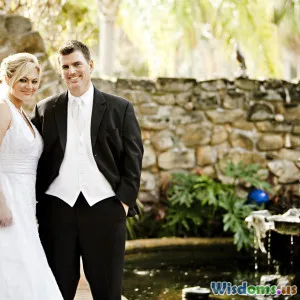
Why Separate Hobbies Can Strengthen Your Marriage
7 min read Discover how cultivating separate hobbies within a marriage can foster individual growth and deepen your connection as a couple. (0 Reviews)
Why Separate Hobbies Can Strengthen Your Marriage
Marriage often conjures images of shared activities—from date nights to common interests. While spending quality time together is essential, indulging in separate hobbies can play a surprisingly powerful role in reinforcing your marital bond. This article explores the psychology and practical benefits behind maintaining individual pursuits in a committed relationship, backed by research, expert opinions, and real-life examples.
The Common Misconception: More Time Together Equals Stronger Marriage
Conventional wisdom might suggest that couples should spend as much time together as possible to foster closeness. While shared experiences create memories and enhance intimacy, too much togetherness can sometimes lead to dependency, boredom, or loss of personal identity. According to Dr. John Gottman, a leading researcher on marital stability, couples who have healthy boundaries and maintain individual identities report higher satisfaction and lower conflict levels.
Why Individuality Matters in a Relationship
Psychologists emphasize the importance of autonomy within intimacy. A study published in the Journal of Social and Personal Relationships highlights that couples who pursue separate interests exhibit increased self-esteem and reduced relational stress. When each partner enjoys their own hobby or passion, they bring fresh perspectives, enthusiasm, and resilience back to the marriage.
Example:
Emma and Jason, a married couple of seven years, experienced stagnation when their routines completely overlapped. Emma decided to join a local pottery class while Jason started training for marathons. Their separate hobbies not only provided personal fulfillment but also sparkled new conversations and rekindled attraction.
Enhancing Communication and Reducing Conflict
Separate interests create opportunities for stimulating conversations that break the monotonous 'how was your day?' cycle. Sharing experiences from different social circles or learning new skills provides fresh content for discussions, fostering intellectual intimacy.
Moreover, couple therapist Esther Perel points out that having one's own hobbies helps manage conflicts because partners have independent outlets for stress relief and creative expression. This reduces the chances of projecting frustrations onto each other.
Building Trust and Respect Through Space
Trust flourishes when partners respect each other’s autonomy. When one spouse respects the other’s desire for a solo hiking trip or book club attendance, it demonstrates confidence in the relationship's solidity. This respect leads to deeper emotional security.
Data from a 2019 Pew Research Center survey indicated that couples who frequently engage in individual activities within their relationships rated their partnership's quality as higher than those who seldom did.
Overcoming Guilt and Societal Pressure
Some couples struggle with the notion that “separate” means “distant” or “disinterested.” It’s important to shift this mindset. Taking personal time isn’t avoiding your partner; it’s investing in yourself, which ultimately benefits the couple. Communicating openly about your needs and scheduling personal time respectfully prevents misunderstandings.
Crafting the Balance: Shared vs. Separate Activities
The key is balance. Couples should strive to enjoy meaningful activities together while cultivating individual pursuits:
- Shared Activities: Date nights, traveling, cooking, or watching favorite shows.
- Separate Hobbies: Photography, sports, crafting, joining clubs, or continuing education.
For example, Alyssa enjoys weekly yoga classes, a solo practice that centers her and enriches her mood. Her partner, Marco, channels his passion through model building. They respect each other's space and set time aside for joint weekend hikes, blending shared and individual interests harmoniously.
Real-World Data Supporting Separate Hobbies in Marriage
- A study published by the American Psychological Association in 2021 revealed couples who engaged in solitary hobbies experienced a 15% higher rate of marital satisfaction over a five-year period.
- Research from the University of Denver found that couples with distinct but respectful personal hobbies report better conflict resolution skills and increased emotional bonding.
Expert Tips to Incorporate Separate Hobbies in Your Marriage
- Communicate Your Interests: Share reasons behind your hobbies to avoid jealousy or confusion.
- Schedule Personal Time: Regularly plan times to pursue your hobbies so it becomes a norm.
- Celebrate Success and Share Stories: Use your individual achievements or experiences as conversation starters.
- Support Each Other’s Growth: Attend each other’s events or exhibitions when possible.
Conclusion: Embrace Individuality to Enrich Togetherness
Separate hobbies in marriage are far from signs of disconnection; they are the lifeblood that fuels personal happiness and relational depth. Giving yourselves permission to follow your unique passions fosters self-esteem, communication, trust, and admiration—cornerstones of a healthy, enduring marriage. So, pick up that guitar, join that book club, or sign up for dance lessons solo; these investments in yourself often translate into greater joy and intimacy within your marriage.
_Remember, strong marriage is not about losing yourself in the other, but about growing together while being whole individuals.
Rate the Post
User Reviews
Popular Posts
















